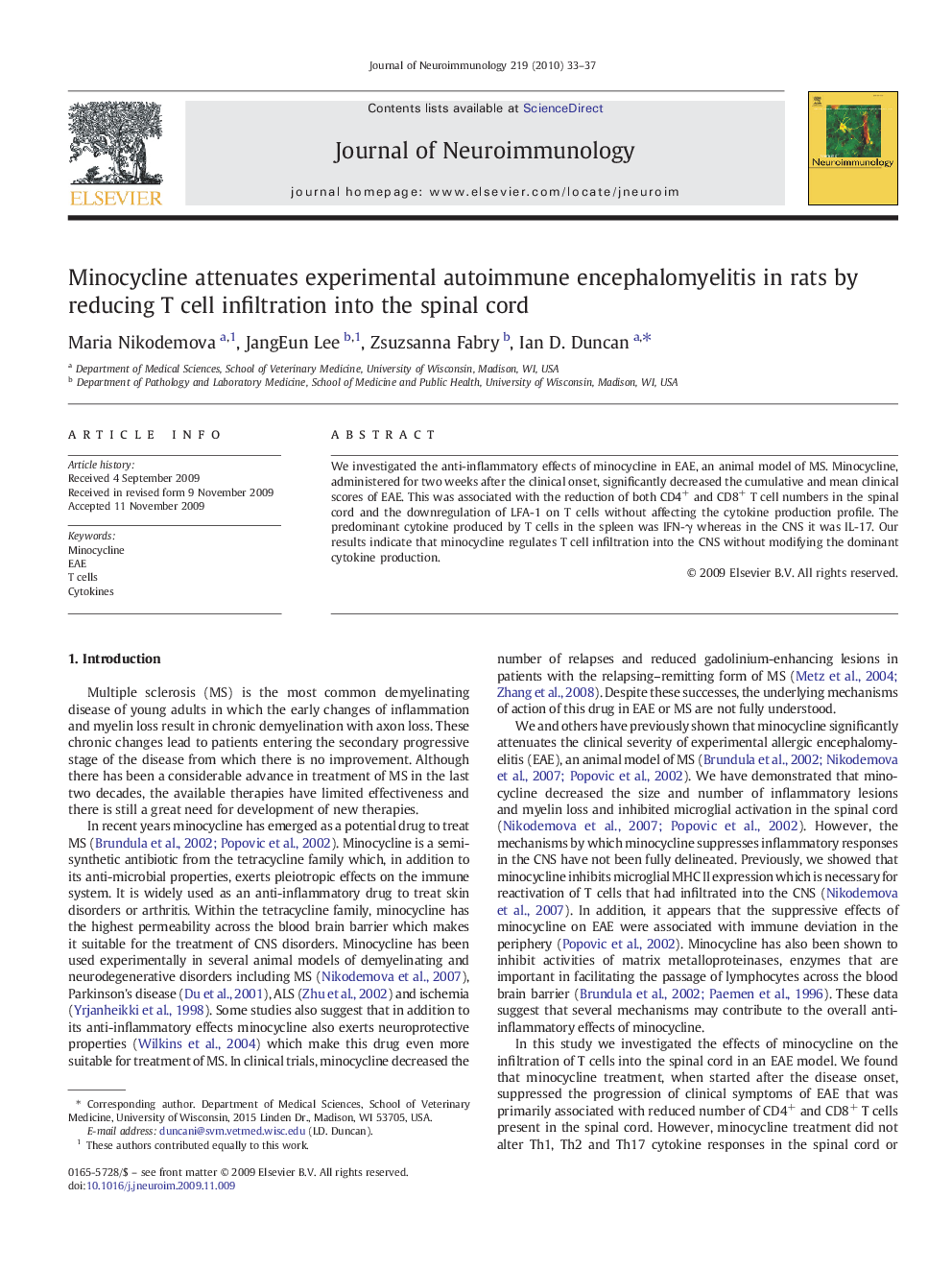| Article ID | Journal | Published Year | Pages | File Type |
|---|---|---|---|---|
| 3064825 | Journal of Neuroimmunology | 2010 | 5 Pages |
Abstract
We investigated the anti-inflammatory effects of minocycline in EAE, an animal model of MS. Minocycline, administered for two weeks after the clinical onset, significantly decreased the cumulative and mean clinical scores of EAE. This was associated with the reduction of both CD4+ and CD8+ T cell numbers in the spinal cord and the downregulation of LFA-1 on T cells without affecting the cytokine production profile. The predominant cytokine produced by T cells in the spleen was IFN-γ whereas in the CNS it was IL-17. Our results indicate that minocycline regulates T cell infiltration into the CNS without modifying the dominant cytokine production.
Keywords
Related Topics
Life Sciences
Immunology and Microbiology
Immunology
Authors
Maria Nikodemova, JangEun Lee, Zsuzsanna Fabry, Ian D. Duncan,
